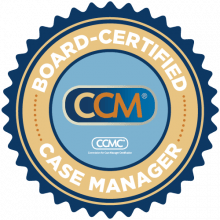Entering the healthcare system is challenging, intimidating, and stressful. In this post, I wanted to share some insights into who’s who and who you can depend on to answer your questions and help you make your hospital experience worthwhile.
The Hospitalist: If you are in a hospital, the doctor who will follow you during your stay will be called a Hospitalist. Today, not many primary care doctors make rounds in the hospital. The Hospitalist is the doctor who makes rounds, writes the orders that the team will carry out. He/She will discharge you and write your discharge orders. The Hospitalist will coordinate your care with other specialists and members of your team. Your records should be sent to your primary care doctor, but they may not, so you need to take good notes while in the hospital to communicate the information to your primary care doctor. As I have mentioned in previous posts, having an advocate, a member of your family, or a trusted friend when you are a patient in the hospital is a good practice, so they can help you keep up to date with what happens when you are in the hospital.
Specialists: During your stay, you may see one or more specialists to help the Hospitalist understand your condition. You may follow up with the specialist after discharge, depending on what was found. It is crucial to make sure these doctors are part of your insurance network to avoid out-of-network charges. Usually, the hospital will check this, but it is good to ask the specialist if he accepts your health insurance to prevent surprise billing. If they don’t, you will have to let the Hospitalist know this so they can find another specialist to see you or get an exception from your insurance company to ensure your insurance company pays their bill.
Nurses: Nurses are the backbone of the healthcare team and can be an essential source of information for you. Talk to your nurses and let them know if you have questions or don’t understand something. They usually can help you better understand things, or they can get the Hospitalist or the Specialist to come to your room and answer your questions. Nurses know how the ‘system’ works, so talking to them will help you better understand the routine and how things work. Nurses spend the most time with patients and are up to date with the plan of care and how things should go.
Charge Nurse: Most nursing units or ‘floors’ have a charge nurse who oversees the nursing staff. If you have a problem with the staff, the condition of your room or services provided, the charge nurse is the person who can investigate things and help resolve issues. If your nurse can’t answer your questions, you can go to the charge nurse, who should help address the problem.
Nurse Case Managers/Social Workers: Today, most hospitals have case managers/social workers to work with patients and their families. These professionals work with your team to coordinate your care and plan for your discharge. These professionals are also in touch with your insurance company to make sure you meet the criteria to be in the hospital at the correct level of care. You can let your nurses know that you want to talk to a case manager if you have questions about your insurance or your discharge care plan. These professionals can help break down barriers and allow you access to resources to meet your needs.
Pharmacists: Pharmacists are essential members of the healthcare team and can help you understand your medication and how they are helping to manage your medical conditions. It is vital to let your team know all the medicines you are taking, including supplements, to have an accurate understanding. Having a pharmacist do a ‘medication reconciliation’ at each transition of care is important to make sure you are on the right medications and working. Before you are ready to go home, ask a family member or friends to bring in all of your medications so that the pharmacist is aware of what you are taking and can ‘reconcile’ with any new medications you are to take on discharge. Medication reconciliation should be completed at each transition of care. Once your medications are reviewed, you can update your medication list. Make sure you share your updated list with your primary care doctor and specialists so they can make changes to your record.
Therapist: During your hospital stay, you may see various therapists; they may include a respiratory therapist, physical therapist, occupational therapist, speech therapist, dietician, or other specialists that can be part of your healthcare team. These professionals can help you understand your conditions and how you can manage them to reach your highest level of wellbeing.
The bottom line is there are a lot of people you will encounter during a hospital stay. You will only see some while you are in the hospital, and others will continue to see when you are discharged. Make notes, so you know who’s who. Ask for their business card so you can keep a record of who you saw and when. Keeping good records will help you be an active part of your healthcare team. Talk to each professional and never be afraid to ask questions. Doing so will help you be better informed and can prevent mistakes or medical errors. Also, being informed will help you know what is going on with your care in the hospital and when you transition home.
I hope this post help you have a better idea of who is who on your medical team. Remember, you and your advocate are the only constant members of your healthcare team, so take notes and be involved in YOUR care. Doing this will improve your hospital experience and help you be the best that you can be!
Have a good week!
Anne













Yep. Good point. So many different people encountered in any typical hospital stay. It’s nearly impossible to keep them all straight. Not only that, but our hospital is a teaching hospital, too, with each Doctor traveling with several students from room to room. It’s nearly impossible to tell anyone apart, especially with them all wearing masks. that makes communication more difficult and the care less personal. I have my patients write everything down in one single notebook throughout their entire stay and suggest they ask each visitor to write down their name, information, and instructions, so that they can refer back the information later. I teach them to say, “Would you mind writing that down for me, so that I won’t forget who you are and what you said?” It works every time. Never had anyone say “no” to this request.
Crucial info Anne, thx so much! (and Bonnie I love your idea of asking visitors to write down their name/instructions—I plan to “steal” this idea!😁)
I like what you said Anne about the only persons who are the true constants on your team is you and or your advocate. With staffing situation’s as they are especially during these critical times there is no guarantee that you’ll get the same nurse or the same charge nurse or the same physician on a daily basis. I do believe that case managers and social workers are well-informed and more so available to patients and their advocates .Being prepared by writing down questions is so important because it gives you an opportunity to consider your condition and your questions very carefully. If you leave before you get your questions answered it might be quite a challenge to get them answered after the fact.
Although there may be many within the system that we can hopefully depend upon, we must ensure that we prepare ourselves to participate fully in our treatment plan which includes asking important questions and getting them answered in a meaningful and timely manner. We are moving past the days of a paternalistic approach to patient care and medical intervention.
Thanks, Anne,
Excellent points. I might add something I recently learned. Some hospitals are also hiring Certified Nurse Practitioners to act as Nurse-Intensivists to assist the Intensivist in critical areas such as Coronary and Neuro Intensive Care Units.